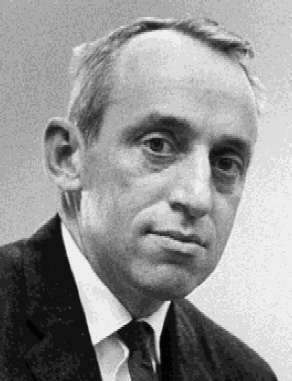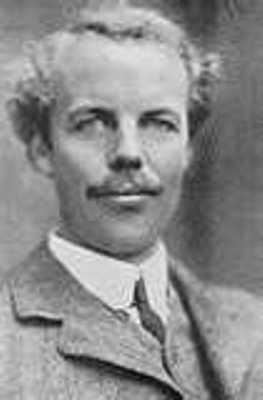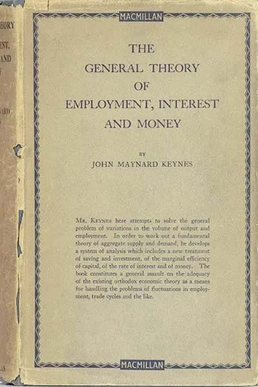A securities turnover excise tax (STET) is a small tax on every stock, swap, derivative, or other trade. It has been levied historically in the United States and has been proposed more recently as a way to reduce speculation in financial markets.
| Part of a series on |
| Taxation |
|---|
 |
| An aspect of fiscal policy |
A securities turnover excise tax (STET) is a small tax on every stock, swap, derivative, or other trade. It has been levied historically in the United States and has been proposed more recently as a way to reduce speculation in financial markets.
In the United States, the STET was used to fund the Spanish–American War. [1]
Re-instatement of the STET was briefly proposed in 1990 as a part of US deficit reduction measures. [2]
John Maynard Keynes, in The General Theory of Employment, Interest, and Money suggested that an excise tax on transactions and trades would discourage speculation in the stock market. [3] [4]
In 1934, muckraking journalist and novelist Upton Sinclair ran for Governor of California on the End Poverty in California plan. The fourth plank of the plan called for repeal of the state's sales tax and imposition of "a tax on stock transfers at the rate of 4 cents per share." [5]
The STET was a major plank of the 2008 platform of American presidential candidate Ralph Nader, [6] and that same year was proposed by Oregon Congressman Peter DeFazio as a means to pay for the Emergency Economic Stabilization Act of 2008. [7]

James Tobin was an American economist who served on the Council of Economic Advisers and consulted with the Board of Governors of the Federal Reserve System, and taught at Harvard and Yale Universities. He contributed to the development of key ideas in the Keynesian economics of his generation and advocated government intervention in particular to stabilize output and avoid recessions. His academic work included pioneering contributions to the study of investment, monetary and fiscal policy and financial markets. He also proposed an econometric model for censored dependent variables, the well-known tobit model.
Keynesian economics are the various macroeconomic theories and models of how aggregate demand strongly influences economic output and inflation. In the Keynesian view, aggregate demand does not necessarily equal the productive capacity of the economy. It is influenced by a host of factors that sometimes behave erratically and impact production, employment, and inflation.

Macroeconomics is a branch of economics that deals with the performance, structure, behavior, and decision-making of an economy as a whole. This includes regional, national, and global economies. Macroeconomists study topics such as output/GDP and national income, unemployment, price indices and inflation, consumption, saving, investment, energy, international trade, and international finance.
A Tobin tax was originally defined as a tax on all spot conversions of one currency into another. It was suggested by James Tobin, an economist who won the Nobel Memorial Prize in Economic Sciences. Tobin's tax was originally intended to penalize short-term financial round-trip excursions into another currency. By the late 1990s, the term Tobin tax was being applied to all forms of short term transaction taxation, whether across currencies or not. The concept of the Tobin tax is being picked up by various tax proposals currently being discussed, amongst them the European Union Financial Transaction Tax as well as the Robin Hood tax.

John Maynard Keynes, 1st Baron Keynes was an English economist and philosopher whose ideas fundamentally changed the theory and practice of macroeconomics and the economic policies of governments. Originally trained in mathematics, he built on and greatly refined earlier work on the causes of business cycles. One of the most influential economists of the 20th century, he produced writings that are the basis for the school of thought known as Keynesian economics, and its various offshoots. His ideas, reformulated as New Keynesianism, are fundamental to mainstream macroeconomics. He is known as the "father of macroeconomics".

In finance, speculation is the purchase of an asset with the hope that it will become more valuable shortly. It can also refer to short sales in which the speculator hopes for a decline in value.

Arthur Cecil Pigou was an English economist. As a teacher and builder of the School of Economics at the University of Cambridge, he trained and influenced many Cambridge economists who went on to take chairs of economics around the world. His work covered various fields of economics, particularly welfare economics, but also included business cycle theory, unemployment, public finance, index numbers, and measurement of national output. His reputation was affected adversely by influential economic writers who used his work as the basis on which to define their own opposing views. He reluctantly served on several public committees, including the Cunliffe Committee and the 1919 Royal Commission on income tax.

The General Theory of Employment, Interest and Money is a book by English economist John Maynard Keynes published in February 1936. It caused a profound shift in economic thought, giving macroeconomics a central place in economic theory and contributing much of its terminology – the "Keynesian Revolution". It had equally powerful consequences in economic policy, being interpreted as providing theoretical support for government spending in general, and for budgetary deficits, monetary intervention and counter-cyclical policies in particular. It is pervaded with an air of mistrust for the rationality of free-market decision making.
A Keynesian beauty contest describes a beauty contest where judges are rewarded for selecting the most popular faces among all judges, rather than those they may personally find the most attractive. This idea is often applied in financial markets, whereby investors could profit more by buying whichever stocks they think other investors will buy, rather than the stocks that have fundamentally the best value. Because when other people buy a stock, they bid up the price, allowing an earlier investor to cash out with a profit, regardless of whether the price increases are supported by its fundamentals.

Alvin Harvey Hansen was an American economist who taught at the University of Minnesota and was later a chair professor of economics at Harvard University. Often referred to as "the American Keynes", he was a widely read popular author on economic issues, and an influential advisor to the government on economic policy. Hansen helped create the Council of Economic Advisors and the Social Security system. He is best remembered today for introducing Keynesian economics in the United States in the 1930s and 40s.
Modern monetary theory or modern money theory (MMT) is a heterodox macroeconomic theory that describes currency as a public monopoly and unemployment as evidence that a currency monopolist is overly restricting the supply of the financial assets needed to pay taxes and satisfy savings desires. According to MMT, governments do not need to worry about accumulating debt since they can create new money by using fiscal policy in order to pay interest. MMT argues that the primary risk once the economy reaches full employment is inflation, which acts as the only constraint on spending. MMT also argues that inflation can be addressed by increasing taxes on everyone to reduce the spending capacity of the private sector.

Hyman Philip Minsky was an American economist, a professor of economics at Washington University in St. Louis, and a distinguished scholar at the Levy Economics Institute of Bard College. His research attempted to provide an understanding and explanation of the characteristics of financial crises, which he attributed to swings in a potentially fragile financial system. Minsky is sometimes described as a post-Keynesian economist because, in the Keynesian tradition, he supported some government intervention in financial markets, opposed some of the financial deregulation of the 1980s, stressed the importance of the Federal Reserve as a lender of last resort and argued against the over-accumulation of private debt in the financial markets.
The history of economic thought is the study of the philosophies of the different thinkers and theories in the subjects that later became political economy and economics, from the ancient world to the present day in the 21st century. This field encompasses many disparate schools of economic thought. Ancient Greek writers such as the philosopher Aristotle examined ideas about the art of wealth acquisition, and questioned whether property is best left in private or public hands. In the Middle Ages, Thomas Aquinas argued that it was a moral obligation of businesses to sell goods at a just price.

Sir Ralph George Hawtrey was a British economist, and a close friend of John Maynard Keynes. He was a member of the Cambridge Apostles, the University of Cambridge intellectual secret society.

Paul Davidson is an American macroeconomist who has been one of the leading spokesmen of the American branch of the post-Keynesian school in economics. He is a prolific writer and has actively intervened in important debates on economic policy from a position critical of mainstream economics.
The Emergency Economic Stabilization Act of 2008, also known as the "bank bailout of 2008" or the "Wall Street bailout", was a United States federal law enacted during the Great Recession, which created federal programs to "bail out" failing financial institutions and banks. The bill was proposed by Treasury Secretary Henry Paulson, passed by the 110th United States Congress, and was signed into law by President George W. Bush. It became law as part of Public Law 110-343 on October 3, 2008. It created the $700 billion Troubled Asset Relief Program (TARP), which utilized congressionally appropriated taxpayer funds to purchase toxic assets from failing banks. The funds were mostly redirected to inject capital into banks and other financial institutions while the Treasury continued to examine the usefulness of targeted asset purchases.

The Keynesian Revolution was a fundamental reworking of economic theory concerning the factors determining employment levels in the overall economy. The revolution was set against the then orthodox economic framework, namely neoclassical economics.

Macroeconomic theory has its origins in the study of business cycles and monetary theory. In general, early theorists believed monetary factors could not affect real factors such as real output. John Maynard Keynes attacked some of these "classical" theories and produced a general theory that described the whole economy in terms of aggregates rather than individual, microeconomic parts. Attempting to explain unemployment and recessions, he noticed the tendency for people and businesses to hoard cash and avoid investment during a recession. He argued that this invalidated the assumptions of classical economists who thought that markets always clear, leaving no surplus of goods and no willing labor left idle.
A financial transaction tax (FTT) is a levy on a specific type of financial transaction for a particular purpose. The tax has been most commonly associated with the financial sector for transactions involving intangible property rather than real property. It is not usually considered to include consumption taxes paid by consumers.
A currency transaction tax is a tax placed on the use of currency for various types of transactions. The tax is associated with the financial sector and is a type of financial transaction tax, as opposed to a consumption tax paid by consumers, though the tax may be passed on by the financial institution to the customer.